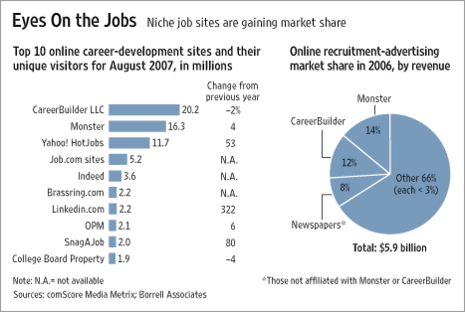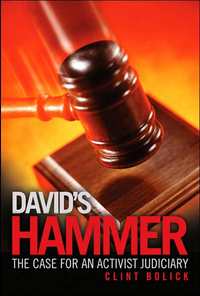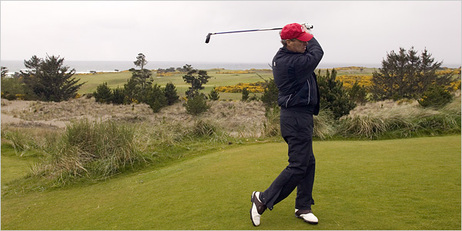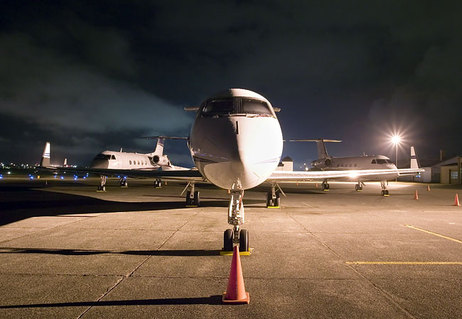Many years ago, I went along with a group of Exec MBA students to Germany. Among them was Bill Swanson. Bill had a sense of humor.
At some point in the trip, I spilled ketchup on my tie. Bill’s response was that normally a ruined tie would be sad, but given my tie, the ketchup was an improvement.
Yes, Bill has a sense of humor; so I’m hoping the story below is a joke.
That’s what I hope, but what I fear is that the story below is one more example of the inefficient, sometimes painful (like when an 8th grader can’t take aspirin to middle school), and sometimes funny, things that we are driven to do to protect ourselves from being sued, in an economy where congress has empowered personal injury lawyers to frequently sue for huge and unpredictable compensatory and punitive damages. (When Joe Ricketts, Ameritrade founder, spoke to my Exec MBA class a few years ago, he said that the biggest threat facing the U.S. economy was the proliferation of tort law suits.)
So it’s either a bad joke; or (most likely) it’s UNO protecting itself against every potential law suit; or it’s a third, and worse, alternative—which would be if the story below is to be taken at face value.
In that case we would have to conclude that some UNO staff have nothing better to do with their time than to paternalistically ‘protect’ young adults from a minuscule risk of illness from freely choosing to purchase and eat cupcakes being sold by fellow students to raise money for good causes.
Here is an excerpt from the page one, lead story, of the Sat., Oct. 6, 2007, Omaha World-Herald:
(p. 1A) Guns. Drugs. Bake sales.
What do these things have in common?
All have been banned at the University of Nebraska at Omaha campus.
Citing safety and health concerns, UNO last week prohibited selling homemade food items at campus fundraisers.
Officials said the prevalence of serious food allergies and the potential for contaminated food — either by accident or deliberately — led UNO to adopt the policy, which then drew complaints from student groups.
"The primary issue is the health of the students and the safety of the students," said Bill Swanson, assistant to the vice chancellor in the Career Exploration and Outreach Office.
No one on the UNO campus has reported problems with contaminated food purchased at a bake sale, Swanson said.
But there have been incidents around the country, he said, and those were enough to prompt a discussion among officials.
The decision has come under fire from students who say the restriction cuts off small student (p. 2A) groups from their primary fundraising source.
The Public Relations Student Society of America traditionally held bake sales once a month to raise money for national conferences, local business luncheons and volunteer work, said the group’s president, Katie Dowd.
The group raised about $1,500 a year hawking homemade baked goods donated by members.
"It’s a big blow to us," said Dowd, who called the potential for food contamination from her group’s offerings "very unlikely."
For the full story, see:
ELIZABETH AHLIN. "Goodies ban half-baked, UNO students say." Omaha World-Herald (Saturday, October 6, 2007): 1A & 2A.
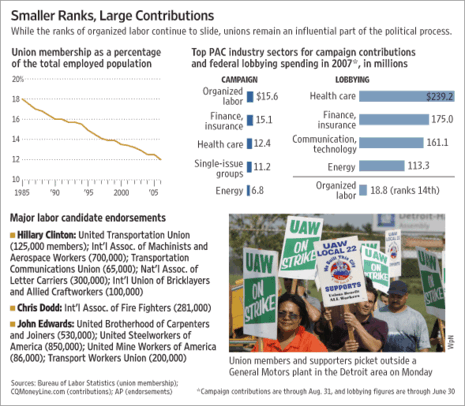 Source of graphic: online version of the WSJ article excerpted and cited below.
Source of graphic: online version of the WSJ article excerpted and cited below.
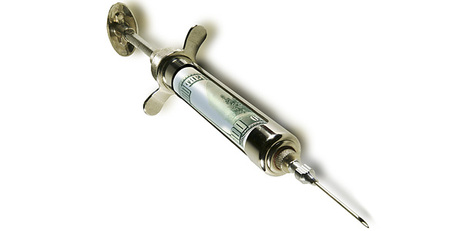

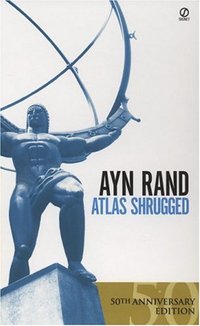
 (Note: ellipsis in Rearden quote was in original; the other two ellipses were added.)
(Note: ellipsis in Rearden quote was in original; the other two ellipses were added.)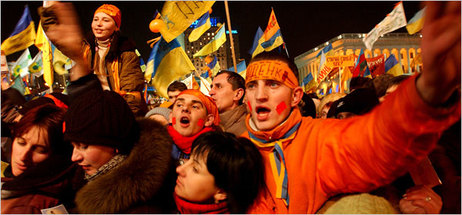
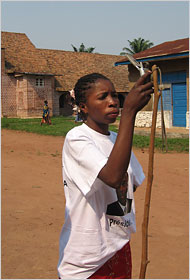 "Micheline Kapinga of Kamponde, Congo, uses a cellphone on the only site in the village that is sometimes able to capture a signal." Source of caption and photo: online version of the NYT article cited below.
"Micheline Kapinga of Kamponde, Congo, uses a cellphone on the only site in the village that is sometimes able to capture a signal." Source of caption and photo: online version of the NYT article cited below. 